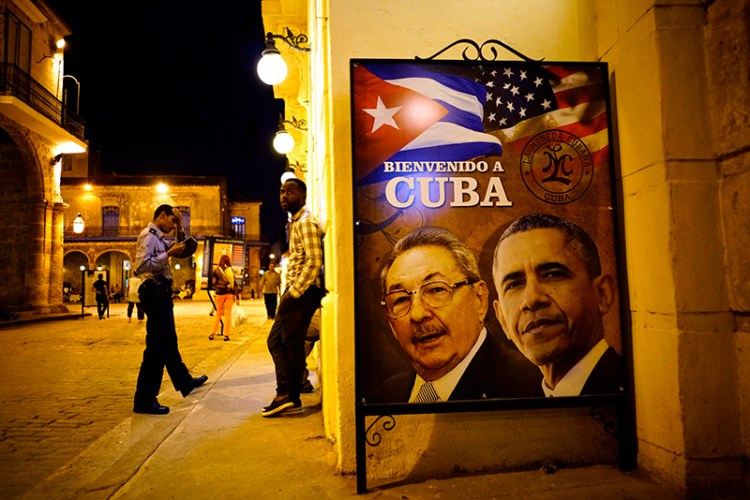WASHINGTON — On the eve of President Obama’s historic visit to Cuba, authorities there ordered dissidents invited to meet with the American leader to stay home, a leading human rights activist said Saturday.
Elizardo Sanchez, a Cuban anti-government activist who chronicles political detentions month-to-month, said he and most of those invited planned to defy the government order.
Sanchez, speaking by phone from Havana, said U.S. officials offered to help the activists get to the meeting with Obama, scheduled for Tuesday.
“Everyone is pretty determined,” he said.
There was no comment from the U.S. Embassy in Havana, the White House or the Cuban government.
The government of President Raul Castro, while welcoming Obama and the overtures Washington has made to normalize relations between the former Cold War enemies, insists that it will not sacrifice its basic socialist principles in the interest of better ties.
To drive home that point, Foreign Minister Bruno Rodriguez delivered a speech on Thursday that belittled many of the U.S. actions so far, as Venezuelan President Nicolas Maduro, the anti-American chief executive in Latin America, arrived in Havana for a visit.
Obama is portraying his trip as an embrace of the Cuban people and an attempt to empower them through freer economic exchange that may eventually bring more democracy.
The White House has said Obama would meet with dissidents and members of civil society of his choosing. White House officials bristled at the suggestion that Cuban authorities might try to impose limits.
But it appears that Cuba has resorted to a common technique, briefly detaining dissidents or ordering house arrests to prevent them from reaching meetings with visiting dignitaries. Several reported being subject to the same treatment before of Pope Francis’ arrival last year.
Sanchez was detained Saturday at the Havana airport upon returning from Miami with his wife. He said he is used to such treatment and was soon released.
“The threatening and detention of government critics prior to visits by foreign leaders has been standard practice in Cuba for years,” said Jose Miguel Vivanco, head of the Americas section for Human Rights Watch.
The Cuban government dismisses many dissidents as “mercenaries” on the payroll of the United States, a notion reinforced by revelations over the years of U.S. financing of anti-government campaigns in Cuba.
Still, even though free speech is limited in Cuba, many Cubans in the arts, media, church and gay communities have felt freer recently to speak out and criticize.
Send questions/comments to the editors.



Success. Please wait for the page to reload. If the page does not reload within 5 seconds, please refresh the page.
Enter your email and password to access comments.
Hi, to comment on stories you must . This profile is in addition to your subscription and website login.
Already have a commenting profile? .
Invalid username/password.
Please check your email to confirm and complete your registration.
Only subscribers are eligible to post comments. Please subscribe or login first for digital access. Here’s why.
Use the form below to reset your password. When you've submitted your account email, we will send an email with a reset code.